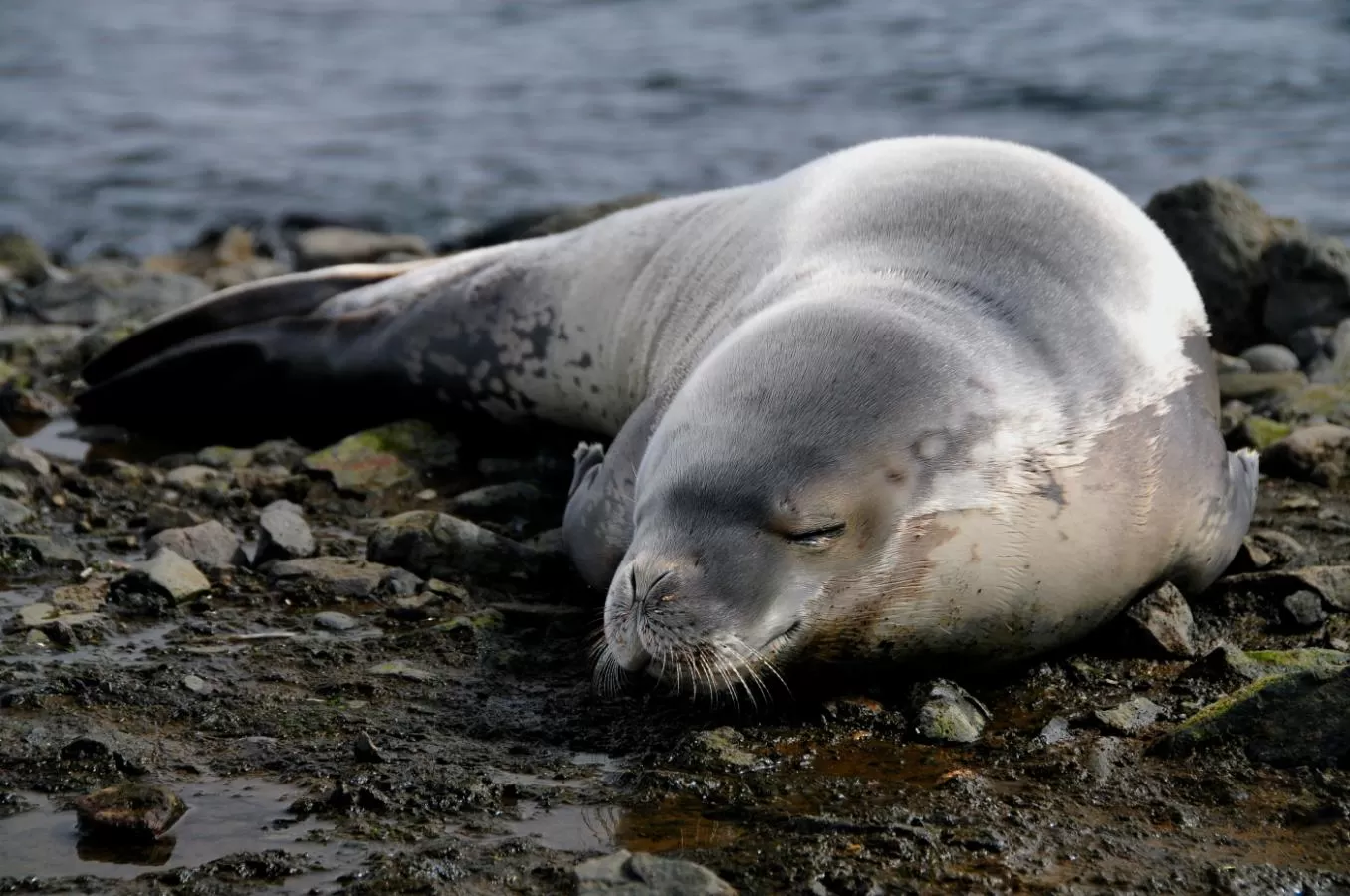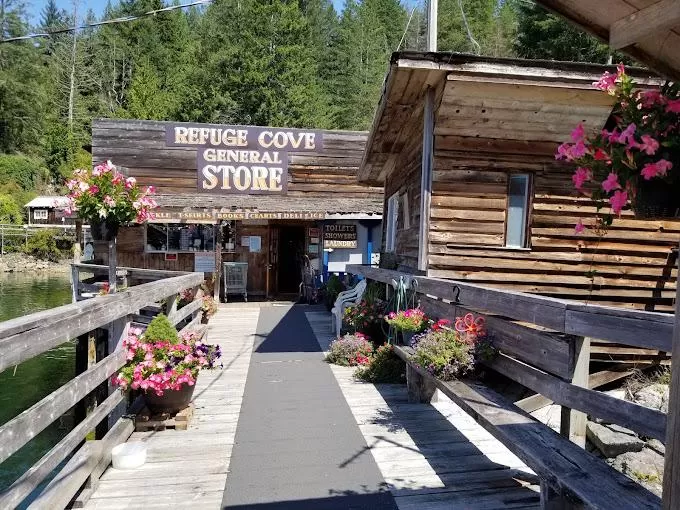Protect Our Waters, One Load at a Time: Marine-Safe Laundry Detergent for Boat & RV
Published: 09/21/2023

Our everyday choices can have a profound impact on the health and survival of marine life, vulnerable to the ever-growing presence of human chemicals
How Everyday Habits Harm Our Oceans
Ever wonder where the water from your morning shower, laundry or the suds from your boat or RV wash go?
Believe it or not, untreated wastewater known as "graywater" finds its way directly into our waterways, posing a hidden threat to the delicate balance of marine ecosystems. This seemingly innocuous mix, originating from everyday sources like sinks, showers, and even boat cleaning activities, carries soaps, detergents, and even bleaches - harmful ingredients for the underwater world.
This untreated water poses a significant threat to marine ecosystems, particularly in ports and coastal regions. In certain regions, graywater is classified as sewage and subject to specific regulations. As a result, numerous marinas and harbors have implemented a strict no-discharge policy.
Just like blackwater (sewage discharge), when graywater is introduced into aquatic environments, the chemical nutrients it carries break down in the water, reducing the availability of oxygen for aquatic organisms. Additionally, this surge of nutrients encourages the rapid growth of algae, a phenomenon known as eutrophication. With an excess of algae, ecosystems can eventually become oxygen-deprived. This oxygen deficiency can lead to suffocation in fish, shellfish, and other aquatic organisms, ultimately leading to the formation of dead zones.
Keep reading, I have some alternatives for you that minimize environmental damage, letting you keep your boat or RV sparkling without the guilt.
Why This Boater Ditched the Detergent Jug for Tiny Strips (and You Should Too!)

Refuge Cove in Desolation Sound is one of our favorite stops for laundry, fuel, water, provisions and excellent dining
From Skeptical to Laundry Strip Fanatic: My Eco-Friendly Boating Revelation: Thanks to a surprising discovery at Refuge Cove!
Witnessing a fellow boater using laundry strips sparked my curiosity (and a touch of disbelief!). Who knew these tiny things could actually clean clothes?
Intrigued by her claims of space-saving convenience, lightweight portability, and even eco-friendliness (a major plus for any water enthusiast!), I had to investigate. Despite skepticism, I researched, experimented with different brands, and put countless loads to the test.
The verdict? I'm officially a laundry strip convert! Not only did they deliver on their promises – cleaning clothes effectively and being incredibly handy on a boat – but I also found a brand that truly prioritizes environmental responsibility.
Before I tell you which laundry strip I chose, let's discuss why ditching traditional detergents is crucial for our oceans:
Using Chemical-Based Laundry Detergents Can Harm The Ocean And Aquatic Ecosystems
- Chemical Runoff: When you use these products, they often get washed down drains and into wastewater systems. Once in the water, these chemicals can have harmful effects on aquatic life.
- Water Pollution: Chemical detergents and cleaning products contain various substances, including surfactants, phosphates, and synthetic fragrances. These substances can pollute water bodies and disrupt the delicate balance of marine ecosystems. For example, phosphates from detergents can lead to nutrient enrichment in water, causing excessive algae growth (eutrophication) that can harm aquatic species.
- Toxic Effects on Marine Life: Many of the chemicals found in these products can be toxic to marine organisms. This includes detergents and cleaning agents containing surfactants and chemicals like bleach. These substances can harm fish, aquatic plants, and other marine life by interfering with their respiratory systems, disrupting reproductive cycles, or damaging their tissues.
- Altered Water Chemistry: The introduction of chemicals into water bodies can alter the water's chemistry, affecting pH levels and creating unfavorable conditions for certain marine species. These changes can harm coral reefs and other sensitive aquatic habitats.
- Microplastic Pollution: Some laundry detergents contain microplastic particles, such as microbeads, which can end up in wastewater and ultimately reach the ocean. These microplastics are harmful to marine life when ingested or absorbed by organisms, and they can enter the food chain, potentially affecting human health as well.
- Bioaccumulation: Chemical pollutants that enter the marine environment can accumulate in the tissues of marine organisms over time. This process, known as bioaccumulation, can result in higher concentrations of harmful chemicals in organisms at higher trophic levels, potentially impacting predators, including humans who consume seafood.
- Habitat Destruction: Some cleaning products are used in and around water bodies, such as lakes or rivers, for cleaning boats, docks, or other equipment. The runoff from these activities can introduce harmful chemicals and toxins directly into aquatic habitats, disrupting local ecosystems.
Safer Cleaning Products Resources

My done-for-you list of supplies in my Boat RV Cleaning Eco Friendly Storefront Amazon
Love the water, but hate harming it? Every cleaning product that washes down the drain impacts our oceans and marine life. Fortunately, there's an easy fix: eco-friendly cleaners!
These biodegradable wonders minimize environmental damage, letting you keep your boat or RV sparkling without the guilt. Plus, many are homemade-friendly and budget-conscious.
Ready to make a splash for the planet?
Discover expert tips: Check out "A Boater's Guide to Less-toxic Cleaning" from the EPA.
Find certified safe products: Use the EPA's search tool to find "Safer Choice" cleaners approved for marine and RV use. Change product type to Marine and RV.
Shop conveniently: Explore my curated selection of "Safer Choice" products in my Amazon Boat & RV Cleaning Eco-Friendly Storefront!
By switching to eco-friendly options and buying certified ones, you'll be joining a wave of change, protecting our waterways, and supporting responsible brands.
What are you waiting for? Dive into a cleaner, greener future for your boat, RV, and the ocean.
Now that you're committed to making a change, discover the laundry strips that turn eco-friendly laundry cleaning into a breeze!
The Tru Earth Laundry Strips
Join the wave of change: One laundry strip at a time. Plastic pollution chokes our oceans, but every action counts. Choose these eco-friendly strips and help eliminate harmful chemicals from your graywater, contributing to a healthier ocean for all.
Confession: I was skeptical too! Like you, I doubted these "magic strips" could clean effectively. So, I researched, tested multiple brands, and put countless loads to the test. The winner? Tru Earth! They deliver on cleanliness, convenience, and most importantly, environmental responsibility.
WHY THESE ARE RECOMMENDED
- Eco-friendly product that packs a ton of cleaning power into a tiny, pre-measured lightweight ultra-concentrated strip of detergent.
- Best performing laundry sheet in many tests, including my own
- Lots of 5-star reviews
- Each strip weighs just 3 grams - a perfect compact size for boat use.
- No measuring, no mess: 1 strip equals 1 load.
- Easy to use. You simply tear off a strip and place it either in the dispenser or inside the drum of the washing machine
- Works in all washing machines (Front & Top Loaders, HE)
- Will dissolve in either hot or cold water
- The packaging is a biodegradable cardboard sleeve that can be recycled or composted
- Gentle enough for even the most sensitive skin
- Vegan and cruelty free
Tru Earth Certifications:
- Paraben-free
- Phosphate-free
- Free of added dyes
- Free of chlorine bleach
- Free of 1,4-dioxane, as certified by independent laboratory tests
- Readily biodegradable in accordance with OECD 310D
- Vegan: no animal-based ingredients or testing on animals by us or our ingredient suppliers
Available in Fresh Scent, Fresh Linen, Heavy Duty Fragrance Free, and Baby Fragrance free
Tru Earth Laundry Strips Are Marine Friendly
I contacted Tru Earth and asked directly if they were marine friendly. This is their response:
"We are Ocean Wise Certified consequently making our products marine safe."
Categories: Healthy Boat Living
Tags: #boatlife








